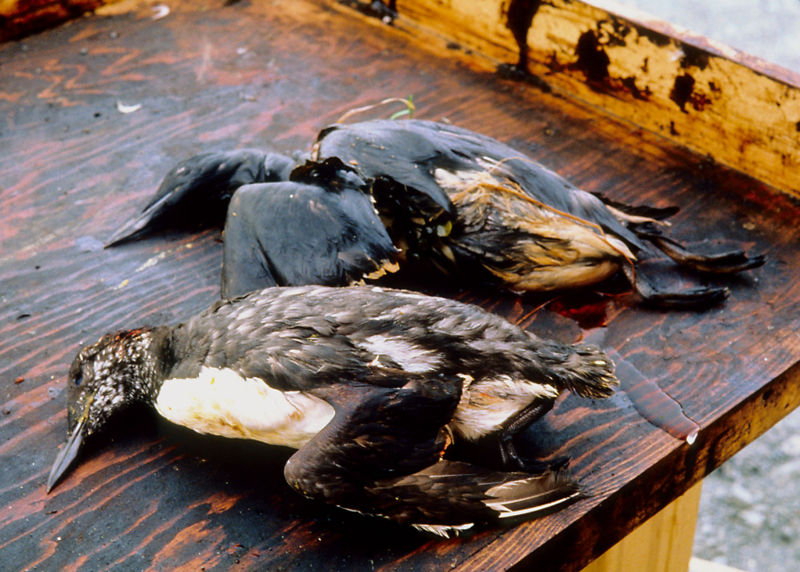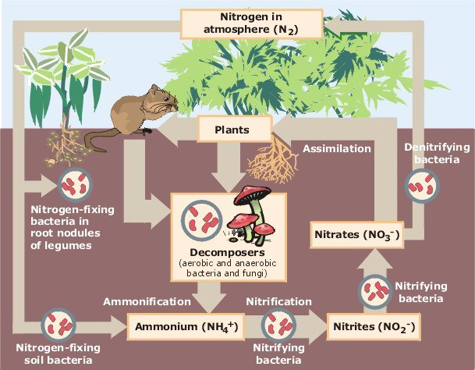Mycobacterium leprae
Bacteria and Humans
Bacteria are some of the most important organisms on earth for several reasons. Their interactions with humans are extremely significant. Most people don't realize how important bacteria are to our world. Here are a few important features bacteria can do, and how they relate to you.
Bioremediation
Bacteria are special organisms which are able to degrade tons of organic materials that many other organisms are incapable of. Because of this, they are huge waste processors. One of the most important things bacteria can do is use bioremediation. Bioremediation is a process that uses organisms such as bacteria, plants, fungi, and more, to use their enzymes to return nature and the environment to its original state before contaminants and other toxins. Bacteria can decompose the toxins and rid the environment of the harmful waste. Bacteria are most commonly known for their ability to remediate soil contaminants, one of the most specific being chlorinated hydrocarbons. Hydrocarbons are often found in petroleum, which is a main component in oil spills. You may have heard of the Exxon Valdez oil spill on the beaches of Prince William Sound a few years ago. Bacteria were used to help remediate the environment. Without the help of these organisms, our environment would truly suffer, and it would be much more difficult to get rid of these contaminants.
For more on the Exxon Valdez oil spill, check out these articles:
Los Angeles Times -Exxon Valdez oil spill lingers in Alaska
The Alaska Fisheries Oil Spill - How Much Oil Remains?
Nitrogen Fixation
Nitrogen fixation is a process where nitrogen is taken from its natural form in the atmosphere and converted into nitrogen compounds, (ammonia.) Bacteria form symbiotic relationships (go here to find out what this means) with plants on the nodules of their roots. Called rhizobia, these bacteria produce nitrogen compounds which help the plant grow. When the plant dies, the nitrogen is released into the atmosphere and it helps other plants grow, as well as fertilize the soil. So why is this important? Well, the atmosphere is made of about 78% nitrogen, and it is essential for any organisms to live on earth. Nitrogen is important for all plants in their chlorophyll molecules, which are extremely important for photosynthesis. We need organisms to fixate this nitrogen gas into forms which can be used by living organisms, in order for the world to work the way it does. As you can see in the cycle of nitrogen below, organisms fix nitrogen into usable compounds and it's taken up by these organisms. In turn, these organisms either die or give off nitrogen which cannot be used. This nitrogen is fixated again, and the cycle continues to go around and around. So if it wasn't for many of the bacteria which are responsible for nitrogen fixation, humans would not even be here!
Disease
As listed above, bacteria can be very helpful organisms. However, there is always a down side. Many bacteria are pathogens, or "disease causing." Bacteria are known to cause some of the most serious diseases in human history. Some of these diseases include pneumonia, gonorrhea and several sexually transmitted diseases, meningitis, salmonella and e. coli (common food-bourne illnesses) cholera, and most importantly-The Bubonic Plague!! Bacteria, while important and necessary for many biological processes and life, can also be extremely harmful.
Medicine
Contrary to their effects of disease I just listed above, bacteria are also used for many well-known medications. An example of this is using bacteria to produce streptokinase, a treatment for people suffering from blood clots. Other examples include Lactobacillus crispatus, which is used to treat recurrent urinary tract infection and recurrent bacterial vaginosis and Lactococcus Lactis, which has been tested to help patients with Crohn's disease. So as you can see, bacteria can once again be helpful humans.
Check out CNN.com's article: Probiotics: Beneficial Bacteria?
Other Common Uses
Bacteria are also found in other common uses. Bacteria uses fermentation to turn milk into yogurt, to produce aged cheeses, wine, beer, and more. Bacteria, while not in the final products, are also used to create chocolate and coffee! The bacteria degrade the pulp that covers the beans, and makes the beans able to use.
Want to make your own yogurt? Check out this site called, "Making Yogurt at Home."



